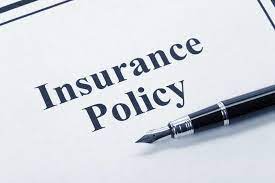Any time you buy insurance of any kind, a policy is created. This applies to both people who purchase insurance for personal use and businesses that require coverage for their staff or clients.
Furthermore, different terms are included in insurance policies, however this purely depends on the policy type and the individual’s preferences.

Your insurance policy ensures that you and your insurance company are on the same page and are aware of each other’s expectations for service.
Therefore, be sure that you are aware of what an insurance policy covers before you buy any insurance. You can find a gentle introduction to the essential information concerning insurance policies in this post.
What Is an Insurance Policy?
An insurance policy is a binding legal agreement between the insurer and the insured. What your supplier commits to deliver you in exchange for your premium is stated in a written and signed document.
Furthermore, this legal agreement demonstrates that you concur with anything your insurance provider or corporation claims.
However, be sure that all the clauses in your insurance policy are favorable to you before you sign on the dotted line. Therefore, purchasing a policy is not sufficient; you also need to read, comprehend, and communicate effectively with your insurance provider.
Insofar as insurance policies are customized by your insurance company to meet your objectives. Nevertheless, these insurance corporations continue to take care of their own interests. So before you put your signature on your insurance contract, it’s crucial that you take care of yourself as well.
Where Does Your Insurance Policy Start?
There must be parts or sections in your insurance policy because it contains information that is crucial to you. Once more, every aspect of this contract must be in great detail.
However, the majority of the language used in these contracts may sound strange or be challenging to comprehend. This is the rationale behind why you ought to hire a specialist to lead you through it.
Going ahead, your policy might typically include:
Information About What Is Covered
For their policyholders, several insurance firms offer a variety of coverage options. Take homeowner insurance as an example. You can purchase homeowner insurance and anticipate receiving coverage for natural calamities like earthquakes or floods.
READ ALSO: Top tourist destinations worldwide
Instead, your provider will include fire disasters in its homeowner’s insurance coverage rather than having that policy in place.
If you encounter earthquakes or floods, this is the time to determine whether to keep your current coverage or purchase additional insurance for your home.
How Much You Are Deductible
You must pay a specific amount as deductibles before your insurance company assumes responsibility for your coverage, as is the case with health insurance.
Therefore, you need to consider how much your insurance company asks you to pay as a deductible and how long it will take you to pay it.
COVERAGE TERMS
All the information concerning the regulations governing your coverage is contained in the terms.
Policy identification number
Each insurance provider assigns a number to each of its clients. As opposed to going over all the facts at the beginning, it makes it easier for policyholders to obtain their insurance more quickly. Therefore, you will get your insurance policy number after you sign your coverage agreement.
PRIVATE AMOUNT
The total of the premiums you must pay to keep your insurance in force includes everything that is included in your policy. Now, you and your insurance company will decide how much of a premium to charge for everything covered by the policy.
TIMEFRAME OF COVERAGE
Most insurance policies include a time limit. For instance, some life insurance policies include a term life insurance time limit that lasts between ten and thirty years.
Also, permanent life insurance does not have any limitations placed on it. Therefore, if your coverage is the type that comes with a time frame, you will find it written in your insurance policy.
What Insurance Does Not Cover
Insurance policies carry what they do not cover in your insurance package. Apparently, this is a way to remind policyholders of what they should not expect in their coverage package.
Parts of An Insurance Policy
There are parts or sections to every insurance policy. For clarification, your insurance policy, irrespective of what type of insurance you bought, must have different parts to it. In contrast, some may bear the sixth part but most policies end in the fifth part or section.
DECLARATIONS
The address and contact information of the policyholder are contained in this section of the paper. This section of the document is included on the first page of your insurance policy.
The declaration page also includes a summary of the insurance information as well as the date the policy was issued. Be sure to locate the date here for coverages that have a duration.
DEFINITIONS
Insurance terms are defined on the policy’s definition page in clearer language. In general, this page aids the customer in understanding the point the business is making.
These terms, however, could still be challenging to understand. You might now ask a specialist for assistance so that you can fully comprehend. Furthermore, you could choose to get the agent’s or the business’s help by calling them.
ASSURANCE CONTRACT
When you pay your premiums, the insurance provider firm agrees to offer the coverage listed in the agreement section. Additionally, some insurance providers divide this piece into smaller chunks.
Additionally, how many segments this section is divided into depends on your coverage. For instance, the portion of your auto insurance policy agreement can divide this section into additional pages and label them with numbers or the alphabet.


